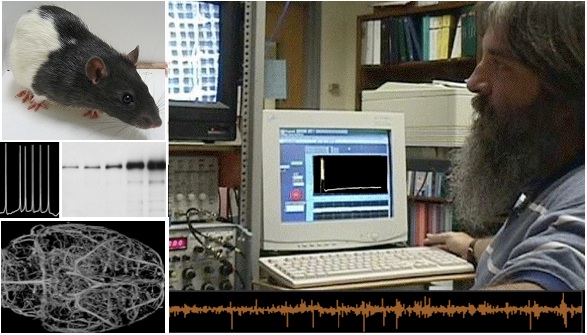

Learning depends on a series of often briefly expressed plasticity mechanisms contributing to memory initiation, memory strengthening, and memory consolidation. Memory retrieval can evoke additional plasticity that affects later retrievals. Learning always occurs within a context.
Previous experience, genetics and environment define the context within which cellular, local circuit, network and larger-scale plastlicity and long-term systems level properties emerge. Alterations in metabolism and activity disturb normal homeostatically-regulated physiology, with emergent cognitive impacts.
Aging produces specific non-global changes at the molecular, cellular, network and behavioral levels. Some plasticity mechanisms are robust across the lifespan, while others are more vulnerable to disruption. Comparing multiple physiological measures across domains at a large number of age points allows us to predict specific age-dependent effects and find relationships between them, and ultimately can lead to better tools to manipulate and even reverse age-associated deficits.
By analyzing neuronal properties and relating these to context-specific events, we aim to achieve a more complete understanding of the cellular mechanisms underlying learning and memory. This basic knowledge is critical for development of better therapeutic strategies.